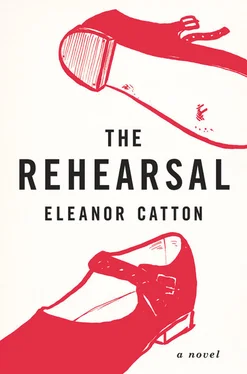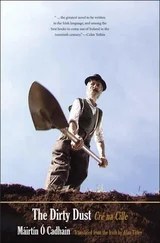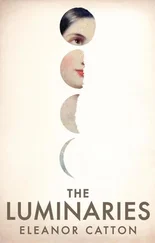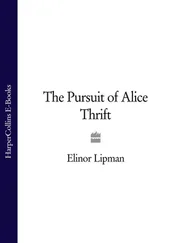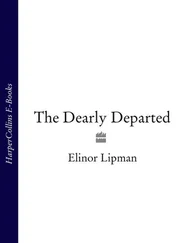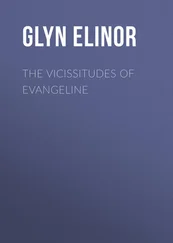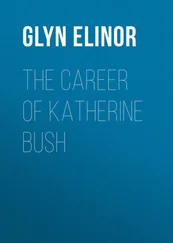Julia’s voice has become dry and choked, and her tongue keeps darting out to wet her lips. Spots of crimson have appeared high on either cheek.
“And then she gets out,” Julia says, “and the silhouettes turn around and see her, and then Victoria kisses Mr. Saladin goodbye, not on the mouth. He turns his face to the side so she can kiss his cheek, and then they both smile and maybe even laugh, like it’s a joke. And then the red taillights come on again and Mr. Saladin’s car is gone, and Victoria and Isolde go into the house together. Isolde is the one who unlocks the gate, and while she reaches for the latch Victoria steps into the light and looks at me, really gets a long look at me, and then she says something under her breath to Isolde like she’s unhappy. And then they disappear.”
Julia comes abruptly to an end and looks at the saxophone teacher for the first time. Her mouth is twisted and her expression is sour, as if the performance has made her remember an unpleasant feeling that she would rather have forgotten.
“Was that really what happened?” the saxophone teacher says, as the lights return to normal and Julia reaches for her sax. “Was it Mr. Saladin in the car, Julia? Could you be sure?”
“I was just telling you what I imagined,” Julia says, all of a sudden grouchy and withdrawn and peering suspiciously at the saxophone teacher like she is an enemy. And then she adds, “It was dark.” She picks at one of the keys on her sax, just to hear it clack.
“This could be very important,” the saxophone teacher says.
“It’s what I imagined,” Julia says again, retreating further. She turns away and plays an arpeggio to warm up.
“Julia,” says the saxophone teacher. Her eyes are gleaming. “Tell me what you saw.”
“Nothing,” Julia says, and although she is sullen and inward the saxophone teacher senses in her something like triumph, as if Julia has led her somewhere remote and treacherous only to abandon her. “I dropped her home. She said goodbye. She got out. She shut the door. Nothing happened.”
Saturday
“Can you remember losing your innocence, Patsy?” the saxophone teacher says.
They are in the afterward bar, Patsy sitting sideways in the booth with her legs up and her brown boots crossed at the ankle. There is a bottle between them, and two glasses, each stained with the pale gray kiss of a woman’s lower lip, like a fingerprint just below the rim.
“Do you mean a specific event?” Patsy says. “The actual loss of it, do you mean?”
“Yes.”
“Losing my virginity?”
“Not necessarily. Just if there was a moment when you ceased to be innocent. The moment you fell. Can you remember your fall?”
Patsy thinks about this quietly for a second. The saxophone teacher raises her wineglass to her mouth and drinks. Patsy is beautiful tonight. Her hair is swept back into a tumbling handful at the nape of her neck, and her eyes are clear and bright. She wears a heavy brass locket, a gift from Brian, an antique and accidental-seeming piece that suits her perfectly, suits the stout capable breadth of her chest and the soft notched hollow of her collarbone. Patsy always suits her clothes, her costume. The image of her is always complete, the saxophone teacher thinks: it is impossible to halve her, undress her, subtract from her. The sax teacher cannot imagine removing the necklace, even in her mind—she can’t imagine Patsy unclothed, Patsy without the trimmings and trappings that she inhabits so completely.
Patsy rolls the stem of her wineglass in her fingers.
“I was never veiled or misted as a kid,” she says slowly. “You know, Santa Claused, Easter Bunnied, cabbage-patched, euphemized. I can’t remember any illusions. I can’t remember ever not knowing. Sex was never really a mystery. And there was no God in our house, so no mystery there. Of course I had first experiences like everybody else, made mistakes like everybody else, repaired and reinvented myself like everybody does. But I can’t remember ever really falling . I can’t remember if I was ever really innocent. I have no nostalgia for a time before.”
She looks up at the saxophone teacher. “Is that terribly sad?” she says, and laughs.
The sax teacher smiles and says nothing, and they both sit quietly for a while, touching their wineglasses with their fingertips, looking away.
“Everything had a precedent,” Patsy says after a time. “Everything I have ever done had a template, a formula, a model, something public and visible and known . I knew the shape of everything I would ever meet, before I met it. The template always preceded the reality, the experience, the personal truth of a thing. I learned about love from the cinema, and from television, and from the stage. I learned the formula and then I applied it. That’s how it happened for me. My whole life.”
She gives another little tinkle of a laugh. “Is that terribly sad?” she says a second time. “Is that very sad?”
Up on the little dais next to the piano the double-bassist leans forward and says into his microphone, “One last song, folks. Here’s one last song.”
May
The day after the Theater of Cruelty lesson Stanley ran into the victim of the exercise on the main staircase. The boy was walking quickly with his head down, taking the stairs two at a time. His hair was cropped close to his skull now, to even up the patch on the crown that the masked boy had snipped. The shorter cut didn’t quite suit him. He looked a little frightened, his ears and forehead protruding too obviously from under the shrunken cap of hair. He was wearing a new shirt.
“Hey,” Stanley said, reaching out a hand to stall him.
The boy turned guilty eyes up at him and nodded a shy hello.
“I just wanted to say that I went and complained,” Stanley said. His voice sounded huge in the stairwell, spiraling up and up to the floors above and ringing clear and hollow in the vertical shaft like the pealing of a bell. “About what happened. I went to the Head of Movement and complained.”
“Thanks,” the boy said quietly. “But it’s all right now. It was just a dumb thing.” He made as if to continue downstairs, but Stanley stopped him, moving closer and cornering him so he was trapped flat, pinioned against the banister with nowhere to go.
“I’m going to talk to the Head of Acting as well,” Stanley said. “I can’t believe that nobody else is doing anything about this. It’s disgusting. What they did to you was disgusting. And nobody cared.”
The boy looked at Stanley inscrutably for a moment. He reached back with both hands for the banister, and stood there with his arms behind him, tugging gently on the handrail. Then he said, “I was a plant.”
“What?” Stanley said.
“I was a plant. The main guy—Nick, the guy in the mask—he asked me and arranged it all beforehand. I knew they were going to pick me, and I knew what was going to happen, mostly. I knew about the water, and he said they might slap me around a bit. I thought it would be funny. Just for a laugh.”
Stanley was frowning. “But you bolted.”
“I didn’t know they were going to go that far,” the boy said. “My shirt and everything. Cutting my hair. He only told me about the water-trough. I thought it would be okay. I thought I’d help them out or whatever. I said yes.”
“Is there always a plant?” Stanley said. “Every year?”
“I guess,” the boy said. He jerked his gaze away, past Stanley’s shoulder and down the stairs. “They’d never get away with it otherwise.”
“They shouldn’t get away with it.”
“Yeah,” the boy said, and shrugged. “It was just an exercise. It was only to make a point.”
Читать дальше
